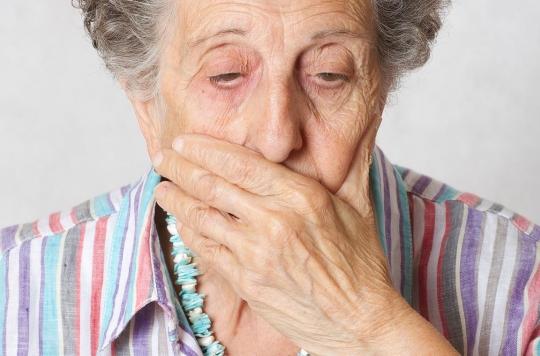Adults who have lost teeth are more likely to develop cognitive impairment and dementia.

- In adults, each tooth lost would increase the risk of having a decline in cognitive functions or suffering from dementia.
- Taking care of your oral health would reduce these risks.
Most adults have 32 teeth. Generally, this figure is reached as early as adolescence. In detail, each has eight incisors, four canines, eight premolars and twelve molars, including the four wisdom teeth. According to a study published in the journal Jamda, people who have lost teeth are more likely to develop cognitive impairment and dementia. Worse, each lost tooth would increase this risk.
Each missing tooth increases the risk of cognitive impairment by 1.4%
To reach this conclusion, the researchers worked on data from 34,074 adults and 4,689 cases of people with impaired cognitive function. Thus, according to their results, those who lost teeth were 1.48 times more likely to develop cognitive disorders and 1.28 times more likely to suffer from dementia. According to the scientists, each missing tooth was associated with a 1.4% increased risk of having cognitive impairment and 1.1% for dementia. Nevertheless, these consequences are not inevitable: the wearing of dental prostheses protects. In other words, adults who take care of their dental problems would be better protected from these risks. “The relationship between the number of missing teeth and the risk of decreased cognitive function greatly strengthens the evidence linking tooth loss to cognitive impairment, said Xiang Qi, one of the study’s authors. This provides evidence that tooth loss can predict cognitive decline”.
Oral health helps preserve cognitive functions
In addition to the direct consequences for brain health, the authors point out that missing teeth can lead to difficulty chewing. This can lead to nutritional deficiencies and impact the brain. “Our results highlight the importance of oral health and its role in preserving cognitive functions, believes Bei Wu, one of the authors of the study. Given the staggering number of people diagnosed each year with Alzheimer’s disease and/or dementia, and the possibility of improving oral health throughout life, it is important to better understand the link between poor oral health and cognitive decline“. The stakes are high: 1.2 million people suffer from Alzheimer’s disease in France.
Daily actions to preserve your oral health
A few small daily gestures allow you to take care of your oral health. First of all, it is essential to brush your teeth at least twice a day – ideally three times, after each meal – for two minutes. You should also avoid snacking on sugary snacks or drinking sodas. Once a day, it is also advisable to complete your toothbrushing by cleaning with dental floss or toothbrushes, which remove bacteria and dental plaque more effectively. Finally, it is obviously recommended to see your dental surgeon every year, for a check-up and scaling if necessary. Note that a classic consultation with a dentist is covered at 70% by Health Insurancebased on the conventional rate set at 23 euros.
.















